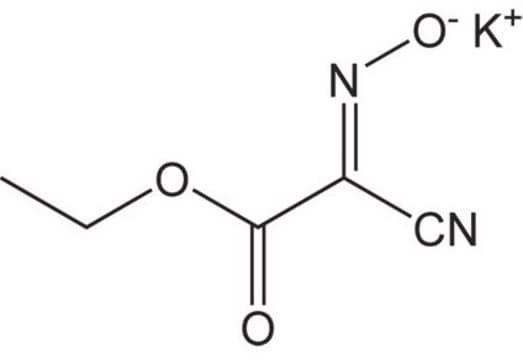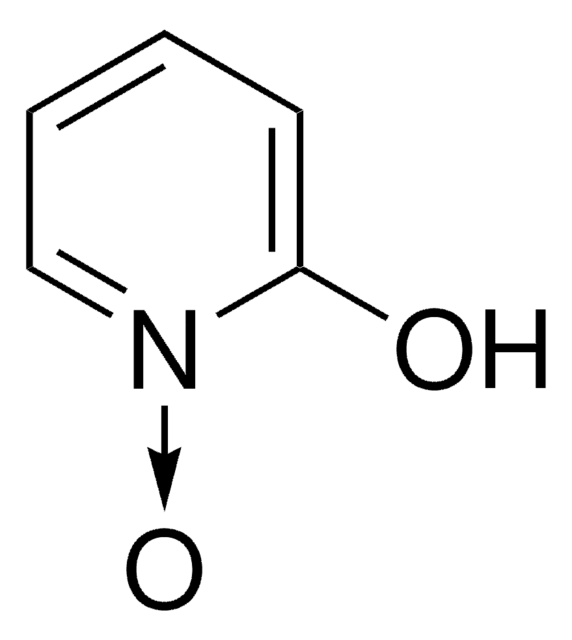776874
K-Oxyma
97%
Synonym(s):
2-Cyano-2-(hydroxyimino)acetic acid ethyl ester, potassium salt, Ethyl (hydroxyimino)cyanoacetate potassium salt
About This Item
Recommended Products
Assay
97%
form
powder
reaction suitability
reaction type: Addition Reactions
mp
141-147
application(s)
peptide synthesis
storage temp.
2-8°C
SMILES string
CCOC(/C(C#N)=N/[O-])=O.[K+]
InChI
1S/C5H6N2O3.K/c1-2-10-5(8)4(3-6)7-9;/h9H,2H2,1H3;/q;+1/p-1/b7-4+;
InChI key
ZFBMUWGNRJITLS-KQGICBIGSA-M
Application
- Non-explosive replacement for HOBt and HOAt with at least comparable performance to HOAt
- Outperforms HOAt in sterically demanding peptide bond formations
- Compatible with carbodiimide-mediated; solution and solid phase peptide coupling;
- Less epimerization than HOBt in fragment condensation reactions
- K-salt especially useful in peptide coupling on mild acid-labile resins such as 2-chlorotrityl; leading to minimal to no cleavage of the peptide from the resin due to its more alkaline character
- K-salt has a higher melting point than OxymaPure
Storage Class Code
11 - Combustible Solids
WGK
WGK 3
Flash Point(F)
Not applicable
Flash Point(C)
Not applicable
Certificates of Analysis (COA)
Search for Certificates of Analysis (COA) by entering the products Lot/Batch Number. Lot and Batch Numbers can be found on a product’s label following the words ‘Lot’ or ‘Batch’.
Already Own This Product?
Find documentation for the products that you have recently purchased in the Document Library.
Customers Also Viewed
Our team of scientists has experience in all areas of research including Life Science, Material Science, Chemical Synthesis, Chromatography, Analytical and many others.
Contact Technical Service












